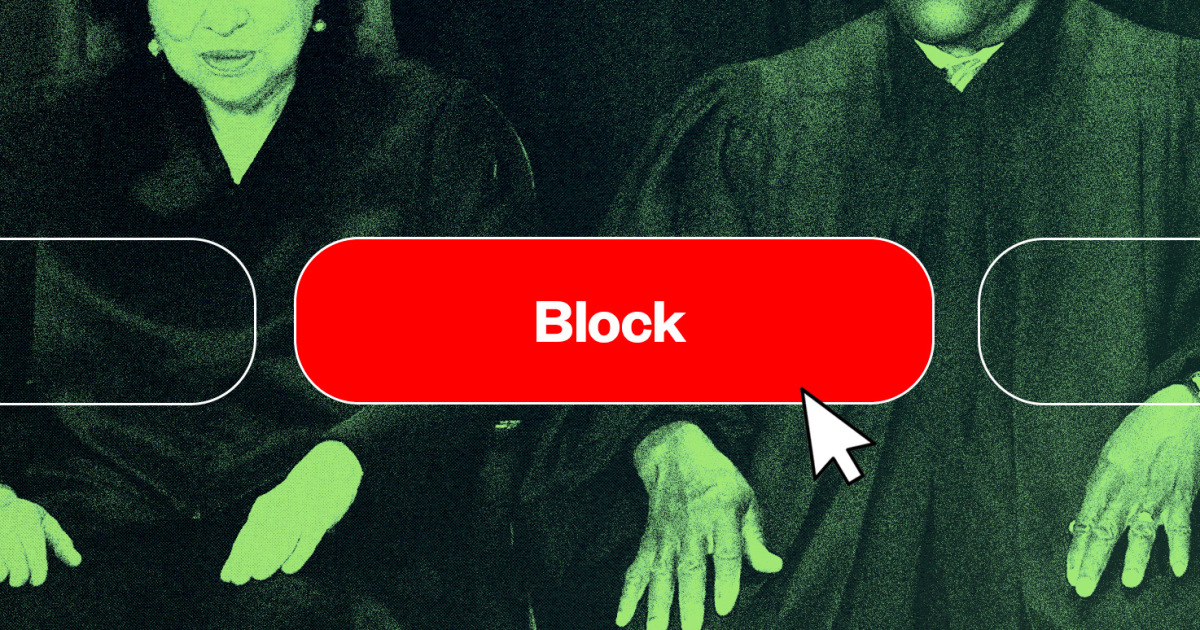Former President Donald Trump’s frequent use of Twitter lurked in the background as the justices weighed whether an official’s online activities can constitute government action.
The Supreme Court ruled Friday that members of the public in some circumstances can sue public officials for blocking them on social media platforms, deciding a pair of cases against the backdrop of former President Donald Trump’s contentious and colorful use of Twitter.
The court ruled unanimously that officials can be deemed “state actors” when making use of social media and can therefore face litigation if they block or mute a member of the public.
In the two cases before the justices, they ruled that disputes involving a school board member in Southern California and a city manager in Michigan should be sent back to lower courts for the new legal test to be applied.



It’s not, though. The precedent protecting speech that does not incite imminent lawless action, Brandenburg v. Ohio, was won when the ACLU defended a Ku Klux Klan leader. That precedent protects your right to call for the workers of America to rise up and overthrow the corrupt billionaire-led capitalist regime and the politicians who do their bidding. Of course the left and right are not equivalent. But they do have at least one thing in common: deep-seated ambivalence about the free speech. Even the ACLU is faltering: NYT: Once a Bastion of Free Speech, the A.C.L.U. Faces an Identity Crisis
The Palestine issue shows how hate speech restrictions can be used against minority and oppressed groups. Just label it anti-semitism.
Wikipedia: Working definition of antisemitism
Hate speech rules can also be used against criticism of white supremacy and patriarchy. Just claim it expresses hatred of white people and men.